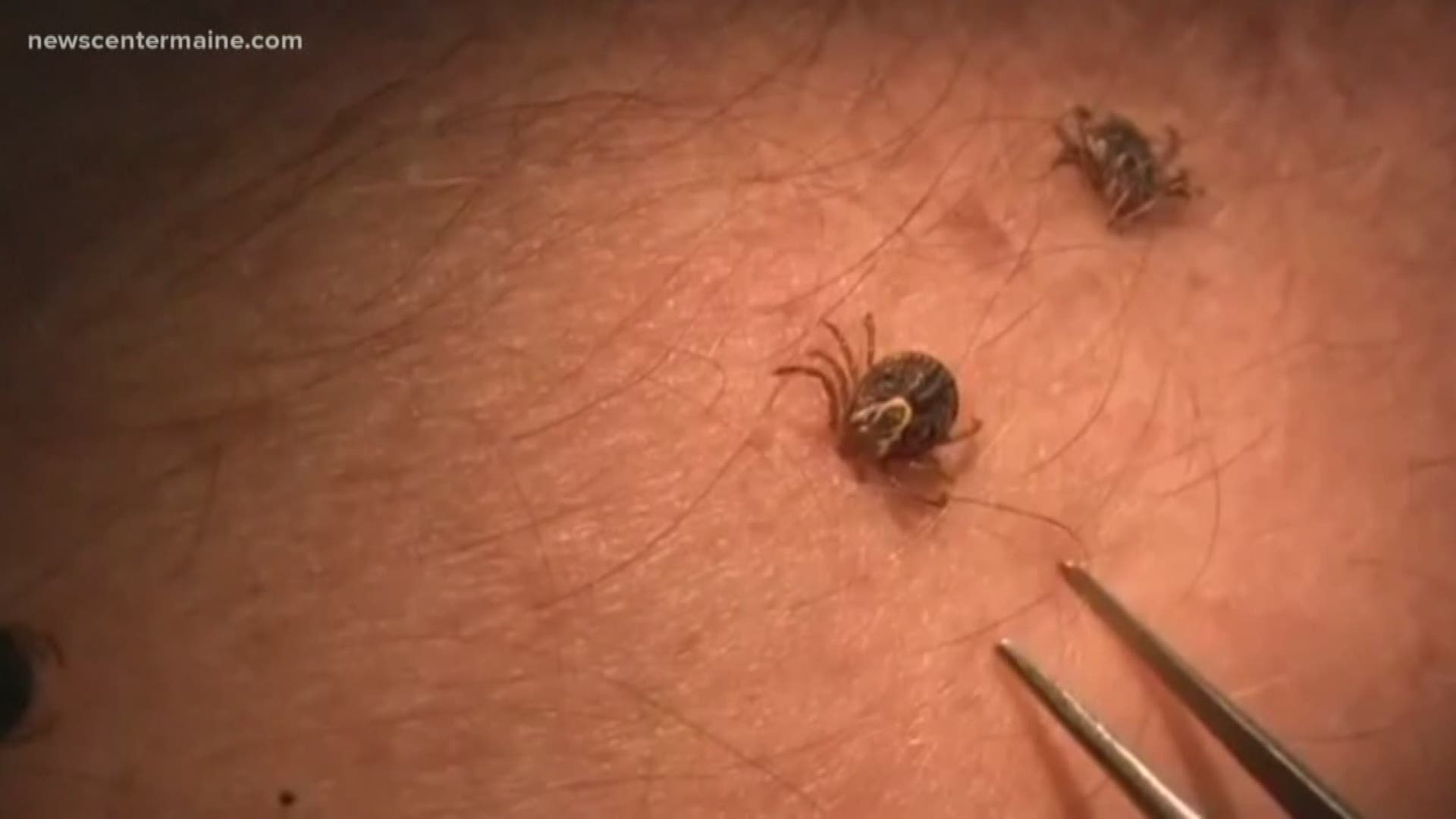AUGUSTA, Maine — Maine's biggest hunting seasons are winding down in the next several weeks, but ticks carrying bacteria that causes Lyme disease can be active anytime temperatures climb above freezing.
Experts want hunters to be aware that ticks are showing up in new areas of the state including far Western, near the Canadian border.
Dana Johnson has spent most of his life hunting and fishing. He has a business trapping nuisance animals.
But being out in the woods for years -- meant being covered with ticks, The majority of the ticks he finds on him are deer ticks, which transmit Lyme disease. 'I was pulling them off every day -- it came with the job, said Johnson.
Several years ago, after finding two embedded ticks -- Johnson started feeling weak. Getting on a ladder or climbing his deer stand was impossible.
'It attacked my muscles and my joints. You felt weak? Wicked weak. Then it went downhill.
Johnson suffered from memory loss and horrible pain. A doctor that prescribed a long course of antibiotics. He slowly began to recover but lost 15 pounds of muscle. Going deep into the woods to hunt is tough.
To protect himself against deer ticks, Johnson wears camouflage clothing treated with the repellent known as permethrin. He then sprays other areas of his gear.
Deer are one of the preferred hosts for deer ticks providing blood female ticks need to lay thousands of eggs, during a ticks two-year life cycle.
Experts recommend that hunters take steps against the risk of bringing Lyme into their own back yards. A large tarp or small swimming pool filled with water can be placed under a hanging deer. When live ticks drop off the deer, ticks are trapped in the water.
'If you have any kind of open wound, you should not be field dressing an animal or butchering an animal,'
Meghan May is an associate professor of Microbiology at the University of New England and an expert on infectious diseases.
She says hunters need to be careful with handling raw meat of any wild animal. But she says there are no documented cases of Lyme being spread from dressing or consuming deer meat.
'Can you contract Lyme disease specifically from eating venison? No, you can't. It's susceptible to heat destruction if you cook it,' said May.
Scientists are collecting ticks in the woods and taking them off deer at tagging sites throughout the state.
'We get them relatively fresh coming into the station and can pull them off pretty readily.'
Chuck Lubeczyk, is a vector ecologist and a field biologist from Maine Medical Center's Research Institute. He and USM Student Jake Angelico are dragging for ticks near this park in Augusta. This location is just one of dozens located throughout Maine. Researchers say adult deer ticks can be very active in the late fall, especially in cool wet conditions.
The ticks will be tested for three different pathogens that cause Lyme, anaplasmosis and babesiosis. Lubelczyk has found small numbers of ticks near Jackman near the US - Canada border -- areas of the state that haven't seen ticks before.
'They are getting established in some of these northern locations and seem to be doing just fine. It does raise questions about climate and deer management, said Lubelczyk.
- Maine Lyme disease data, including town-level and near-real-time data, are available at using the left-hand navigation menu to select “Maine Tracking Network: Tickborne Diseases”
- Information on how to prevent tick bites and exposure to Lyme disease and other tick-borne illnesses.
This story will be updated.


